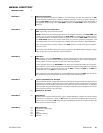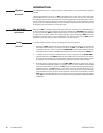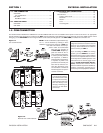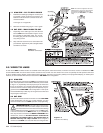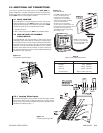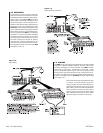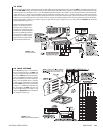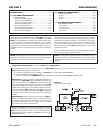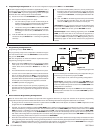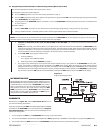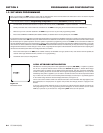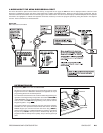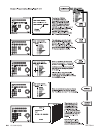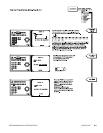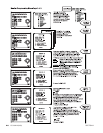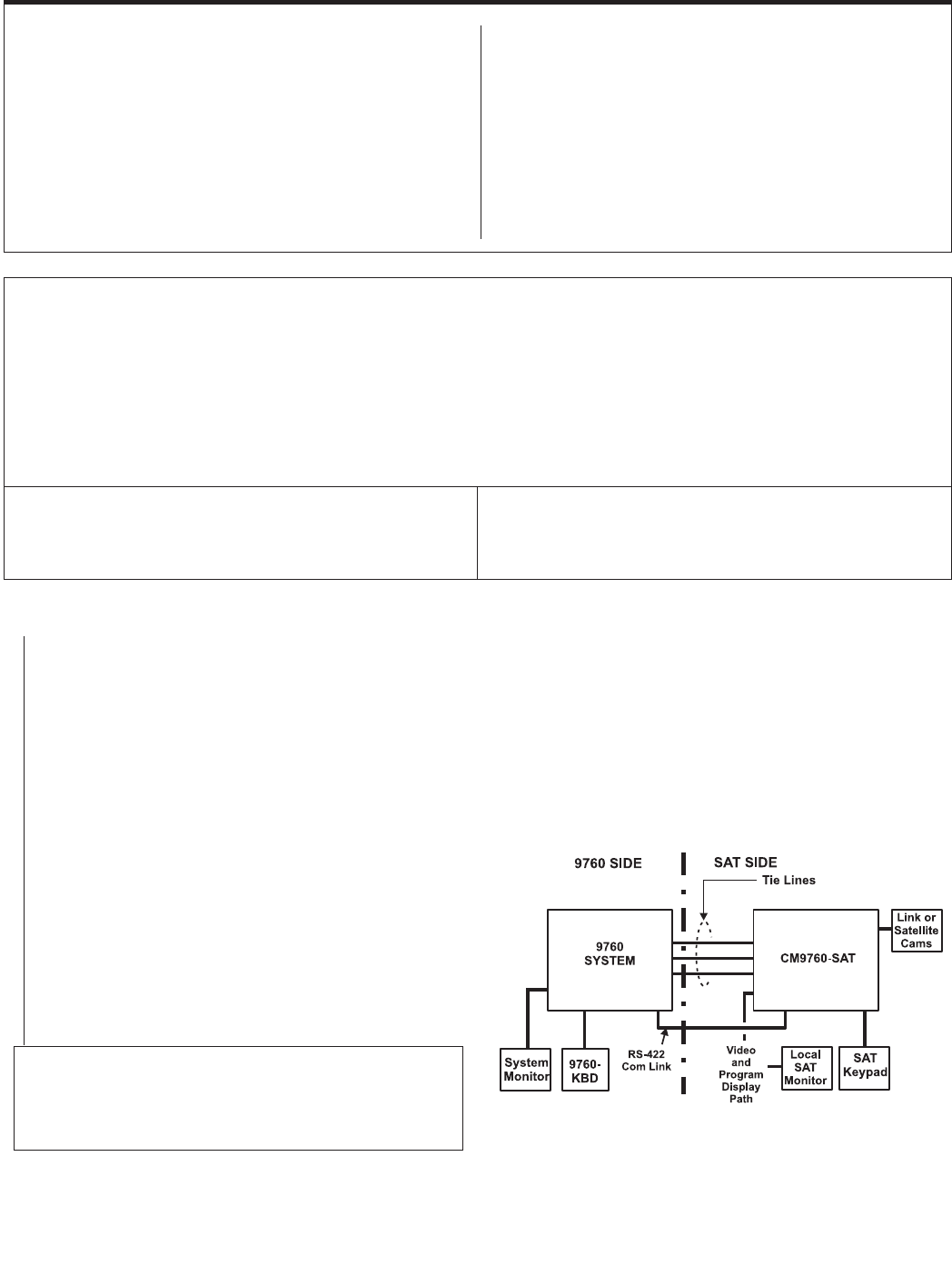
PROGRAMMING AND CONFIGURATION CM9760-SAT 2-1
SECTION 2 PRELIMINARIES
NOTE:
The illustrations in this section represent the functional rela-
tionships of the equipment mix needed to accommodate each pro-
gramming choice that is discussed in the associated text.
NOTE:
In those instances where we discuss procedures or actions
yet to be covered in the manual, we either give a sufficiently adequate
(but abbreviated) discussion, or refer you to the appropriate manual
reference.
1. Programming Configuration I – Program the SAT from the SAT SIDE only.
Figure 2-1
Programming Diagram One
You can program the CM9760-SAT from the SAT SIDE, using a local
keyboard and monitor, or you can program the SAT from the 9760
SIDE, using a 9760-KBD and a system monitor assigned to that opera-
tor. These two basic programming methodologies are not, however,
mutually exclusive. By that, we mean, choosing to program from one
location does not necessarily exclude programming from the other. In-
termediate variations to programming on just one side or the other are
possible.
Interspersed with these programming setups is the need to integrate
what is going to be programmed where, and by whom, given the various
configurations of equipment possible. In the illustrations and explana-
tions below, we discuss some of these variations and indicate advan-
tages, disadvantages and/or tradeoffs, if they exist, of each. We also
describe how to reach the main SAT programming menu from the given
programming location.
There are essentially three basic programming configurations. After we
look at those, we discuss a program variation.
This choice implies that at least one monitor-out line on the SAT SIDE is utilized as a local monitor and that you have a keyboard connected to the
SAT for programming purposes (see Figure 2-1).
(a) Initialize the keyboard to your local monitor (see Section 2,
1.0 SAT MENU PROGRAMMING)
(b) Press the PGM key on the KBD200 or 300.*
(c) Enter the password (default 2899100) and press the ACK key. This activates the main SAT programming menu.
* Although the KBD300V can be used for programming, we don’t
mention it here because (1) it can only be hooked up using the
SAT
keyboard remote port and (2) it requires a dedicated local
monitor-out line for its LCD display. The KBD300V is discussed in
APPENDICES II and III.
PRELIMINARIES
PRELIMINARIES ...................................................................... 2-1
1.0 SAT MENU PROGRAMMING ........................................ 2-5
PROGRAM MODE
Camera Programming Menu............................................. 2-6
Monitor Programming Menu ............................................. 2-8
Time-Date Programming Menu....................................... 2-11
Alarms Programming Menu ............................................ 2-12
Ports Programming Menu ............................................... 2-13
Auxiliaries Programming Menu ....................................... 2-14
Password Programming Menu ........................................ 2-14
Access Programming Menu ............................................ 2-15
2.0 OTHER SAT PROGRAMMING .................................... 2-16
OPERATIONAL MODE
Presets ............................................................................ 2-16
Patterns........................................................................... 2-17
Zones .............................................................................. 2-18
3.0 9760 MGR-SAT PROGRAMMING .............................. 2-19
PROGRAMMING MODE
Comms File..................................................................... 2-19
Cameras File .................................................................. 2-20
Link Cameras File ........................................................... 2-20
Alarm File........................................................................ 2-21
Advantages:
Local control and alarm notification operations are
accessible on the SAT SIDE of the configuration. The system user
can call up link cameras. Local SAT alarms can be viewed locally
and/or automatically reported to the system user. Associated SAT
alarm camera displays can be placed on tie lines for viewing on
system alarm monitors (this is the primary configuration that we
use when discussing SAT configuration, operation and program-
ming). It encompasses all the elements that the SAT is designed to
use and avoids programming from the system side, which is less
efficient.
Disadvantages:
From a system user viewpoint, local SAT op-
eration and programming means someone must be stationed at
the satellite location to fully utilize its functions. If you are interested
only in alarm notification back to the system, you have, at most,
only three tie lines available, instead of four.



